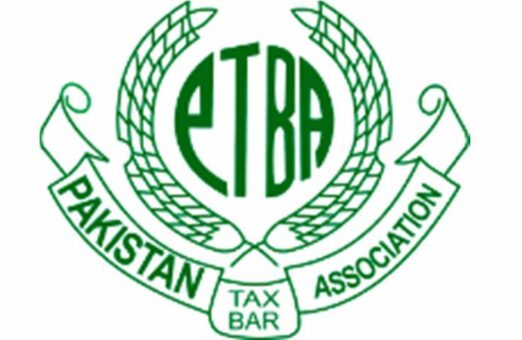ISLAMABAD: Federal Board of Revenue (FBR) has removed the names of taxpayers from Active Taxpayers List (ATL), who are contesting deemed income in various courts.
Pakistan Tax Bar Association (PTBA) has pointed out this issue and wrote a letter to the FBR chairman on Thursday.
READ MORE: FBR unveils new active taxpayers list for Tax Year 2022
The apex tax body highlighted two important issues included that FBR has notified the list of active tax payers on the basis of income tax returns submitted for Tax Year 2022 that through the Finance Act, 2022 a new tax under the umbrella of the newly inserted provision of section 7E of the Income Tax Ordinance, 2001 was imposed on deemed income to be worked out on the basis of fair market value of immoveable properties owned by the tax payers with certain exclusions provided therein.
The imposition of the subject tax has been challenged by various taxpayers in the writ jurisdiction, where the matter is still pending for adjudication before various High Courts of the Country and Supreme Court of Pakistan.
READ MORE: FBR to squeeze taxpayers for generating Rs3.15 trillion in four months
It would be important to point out here that Justice Shahid Jamil Khan of Lahore High Court, Lahore who is dealing with the 7E writs has already granted interim relief in a way that the petitioners shall apply to the concerned Commissioners for extension of time and the respective Commissioner shall grant extension of time for submission of income tax return for Tax Year 2022 till disposal of writ petitions.
In the light of the interim relief granted by the Lahore High Court, the petitioners have not only applied for extension of time but the tax returns for tax Year 2022 have also not been submitted as the matter is still pending adjudication before High Court.
It would not be out of place to mention here that the name of the petitioners holding interim relief order have also been excluded from the active tax payer list which action is neither justified nor legal.
READ MORE: FBR explains increase in FED rates through Finance Supplementary Act 2023
The act on the part of the FBR tantamount to contempt of Court. “In this context arrangements may be made for inclusion of the name of the petitioners/taxpayers in the active tax payer list on the basis of returns submitted for Tax Year 2021.”
Another important aspect that the field officers have also started issuing notices in term of section 120(3)/176 of the Income Tax Ordinance, 2001 where the tax payers being petitioner or other tax payers have submitted their income tax returns on the basis of non-filing of relevant part of return related to working of tax liability u/s 7E of the Income Tax Ordinance, 2001.
The field officers have started issuing notices u/s 120(3)/176 of the Income Tax Ordinance, 2001 even in those cases where the provision of section 7E are not applicable and no tax is chargeable in the cases on account of exclusions provided under the said section.
READ MORE: Sales tax rate enhanced to 18 pc for increasing tax to GDP ratio: FBR
The effect of the above action is that if the notice under section 120(3) of the Income Tax Ordinance, 2001 is not responded by the tax payer or after receipt of explanation specifically with regard to application of section 7E, the assessing officer does not close the proceeding, the system would automatically treat the return as invalid.
It is submitted that under the scheme of the Income Tax Ordinance, 2001 read with Income Tax Rules, 2002 each & every column of return prescribed by the Board is not required to be filed rather the only portion which is attracted in the case is to be filed.
Mere non filing of any part of prescribed return which is not applicable in the case cannot be made basis for adverse action in term of section 120(3) of the Income Tax Ordinance, 2001. Unless it is not proven from record that a specific part of the prescribed return was mandatory to be filed, the tax payer cannot be declared as defaulter of non-fulfillment of his obligation.
Your kind attention is also invited to the fact that the newly inserted section 7E in the Income Tax Ordinance, 2001 is not applicable in all the cases where the tax payer has declared immoveable properties in his wealth statement for Tax Year 2022 rather the provisions of section 7E comes into operation only where the net fair market value of the immoveable properties owned by the tax payer after exclusions of the properties given exemption vide sub-section (2) of section 7E of the Income Tax Ordinance, 2001 exceeds the prescribed limit of twenty five million.
In the light of the submissions made above, the field officers may kindly be directed not to initiate proceeding u/s 120(3) of the Income Tax Ordinance, 2001 for Tax Year 2022 on the basis of application of the provision of section 7E without having any plausible justification.
Moreover, timely decision taking in this regard by this good office would not only be appreciated by the taxpayers/legal fraternity, who are working very hard day & night by playing their part towards the legal responsibility for contributing towards national exchequer but also in collection of taxes at the appropriate time.
